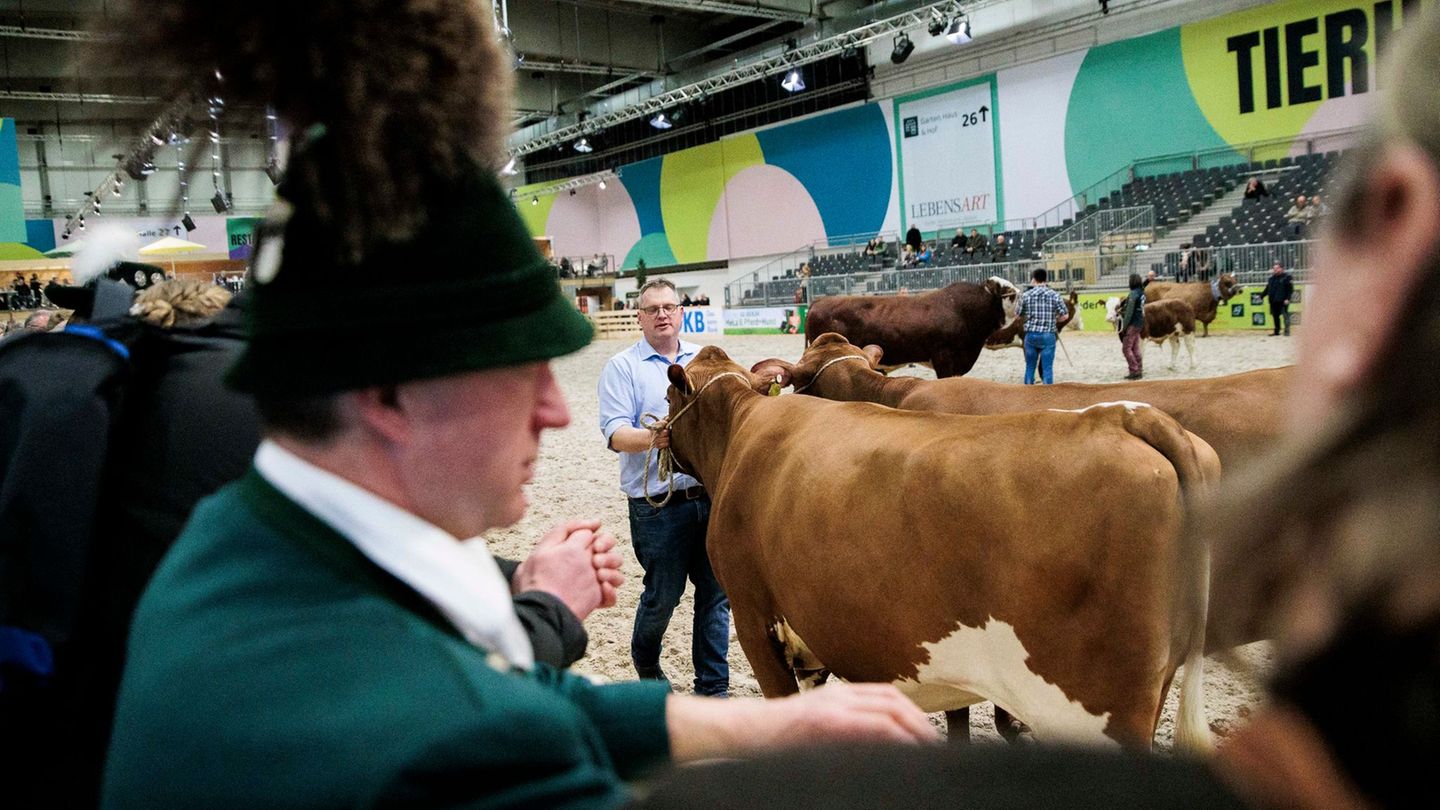Farmers meeting
Because of animal disease: agricultural industry under pressure before Green Week
Copy the current link
No cattle, no sheep, no alpaca: one of the highlights of Green Week has been canceled this year due to foot and mouth disease. The consequences for the industry go far beyond that.
The outbreak of foot and mouth disease (FMD) in Brandenburg is overshadowing the Green Week, which begins this Friday in Berlin. So far there is only one known case. It is unclear whether the virus, which is highly contagious for cattle and other even-toed ungulates, has spread further. But the agricultural industry is already feeling the consequences. Their economic situation was already tense.
What is changing now at Green Week?
Many stables in the large animal hall, which would otherwise house sweet lambs or powerful breeding bulls, will not be built at all this year. The organizers have announced that due to the outbreak, no even-toed ungulates – such as cattle, sheep or alpacas – will be seen at the agricultural fair this year. Animal rights activists have always been critical of the animal exhibition.
The Green Week is not only an important agricultural industry meeting, but also an attraction for hundreds of thousands of visitors. In addition to the many regional agricultural specialties, the animals are considered the highlight of many trade fair visits.
What was the situation of farmers before the outbreak?
The mood of farmers in Germany was already clouded before the outbreak of the animal disease. According to the German Farmers’ Association, in the 2023/24 financial year that ended at the end of June, the results of the companies fell to an average of 77,500 euros.
This was 29 percent below the record level of the previous financial year. Investments must also be financed from profits. Many farms are faced with high costs for energy, crop protection and fertilizer.
What economic impact does the epidemic have on companies?
Exports are particularly problematic. “We can already say that we will have considerable pressure on the markets because third countries are no longer buying animal products to a large extent,” said the Secretary General of the German Farmers’ Association, Bernhard Krüsken, on Deutschlandfunk.
The meat industry association expects losses in the three-digit million range. According to Krüsken, German agriculture generates around five billion euros in animal products abroad every year.
Are only exports from affected regions stopped?
Within the EU, trade in animal products is subject to the so-called regionalization principle. This means: In the case of epidemics such as foot-and-mouth disease or African swine fever, only products that come from the affected region are exempt from trade.
However, this does not apply to many third countries, especially to the important sales markets Great Britain, South Korea and Vietnam, says Steffen Reiter, General Manager of the Meat Industry Association. According to the association, almost two million tonnes of pork and beef were exported to the EU and third countries in the first ten months of last year.
Sales in third countries alone amount to around one billion euros per year. Import stops, such as those already imposed by South Korea and the United Kingdom, not only affect individual regions, but also all products from Germany.
Companies that produce in other federal states far away from the outbreak site are also feeling the effects. Even if the disease is eradicated quickly, it could take months before companies can export to these third countries again, fears Krüsken from the farmers’ association.
What role do the husbandry conditions play?
The virus was discovered in a buffalo farm in Hönow, Brandenburg. The small size of the farm and the small number of farms make spread less likely, emphasized veterinarian Anita Idel. However, the risk of infection with foot-and-mouth disease between animals is very high. “Conversely, this means that the risk of spread would be significantly greater in regions with intensive livestock farming.”
How exactly foot-and-mouth disease was able to reach Germany again for the first time in 35 years is completely unclear. Even critics of conventional agriculture like Idel did not expect this. “This outbreak of foot-and-mouth disease is actually completely surprising,” she told the German Press Agency.
dpa
Source: Stern




